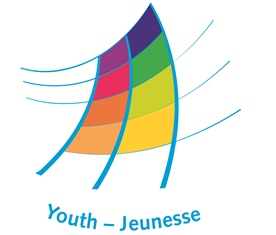Joint Council on Youth

The Joint Council on Youth, April 2024, European Youth Centre Budapest
The Joint Council on Youth (CMJ) brings together the European Steering Committee for Youth (CDEJ) and the Advisory Council on Youth (CCJ). It is a co-decision-making body which establishes the youth sector's priorities, objectives and budgets.
This is the supreme decision and policy-making body for the Council of Europe’s governmental and non-governmental partners in the Youth Department. It is composed of all of the members of the CDEJ and all of the members of the Advisory Council.
The task of the Joint Council, in a spirit of co-management, is to develop a shared position on the youth sector’s overall priorities, annual/pluriannual objectives, main budget envelopes and necessary budget specifications, within the political and budgetary framework established by the Committee of Ministers. It also contributes to the effective mainstreaming of youth policies into the Council of Europe's programme of activities.
The Joint Council's Terms of Reference 2024-2027 were adopted by the Committee of Ministers in November 2023.
The CDEJ and CCJ Bureaux meet together twice a year in order to prepare the CMJ’s meetings, to ensure continuity between meetings, as well as to deal with any other tasks delegated to them by the CMJ.
The Council of Europe intergovernmental committees can nominate up to four rapporteurs to ensure different thematic perspectives are taken into consideration in their work. The Joint Council on Youth has four rapporteurs, they are:




[1] The term "Roma and Travellers" is used at the Council of Europe to encompass the wide diversity of the groups covered by the work of the Council of Europe in this field: on the one hand a) Roma, Sinti/Manush, Calé, Kaale, Romanichals, Boyash/Rudari; b) Balkan Egyptians (Egyptians and Ashkali); c) Eastern groups (Dom, Lom and Abdal); and, on the other, groups such as Travellers, Yenish, and the populations designated under the administrative term "Gens du voyage", as well as persons who identify themselves as Gypsies.
The Joint Council's tasks in relation to the four priorities for 2024-27 are as follows:
Revitalising pluralistic democracy:
- To support young people to realise their full potential as autonomous members of society and exercise their democratic citizenship, the Joint Council will further young people’s, especially those with disabilities, participation in political processes;
Young people's access to rights:
- So they have access to rights, the Joint Council will ensure young people have knowledge of those rights, for example through education on human rights and for democratic citizenship, and that member states adopt measures to implement the recommendations on young people’s access to rights and on the access of young people from disadvantaged neighbourhoods to social rights (Enter!);
Living together in peaceful and inclusive societies:
- To help strengthen social cohesion and respect for diversity, the Joint Council will support young people to develop intercultural competences and to detect, prevent and combat all forms of discrimination on the grounds of Article 14 of the European Convention on Human Rights, as well as to play a role in confidence-building and conflict-transformation activities in the spirit of the UN Security Council Resolution 2250 on Youth, Peace and Security;
Youth work:
- In view of its important contribution to active citizenship and youth participation by helping young people acquire certain values, attitudes, skills, knowledge and critical understanding, the Joint Council will promote youth work by promoting the Council of Europe’s standards on the training of youth workers and the quality of youth work provisions.
For further information on the strategic priorities please visit the 2024-27 priorities page
You can follow the Joint Council on Youth's work on these pages and also by consulting the latest decisions and abridged reports.



